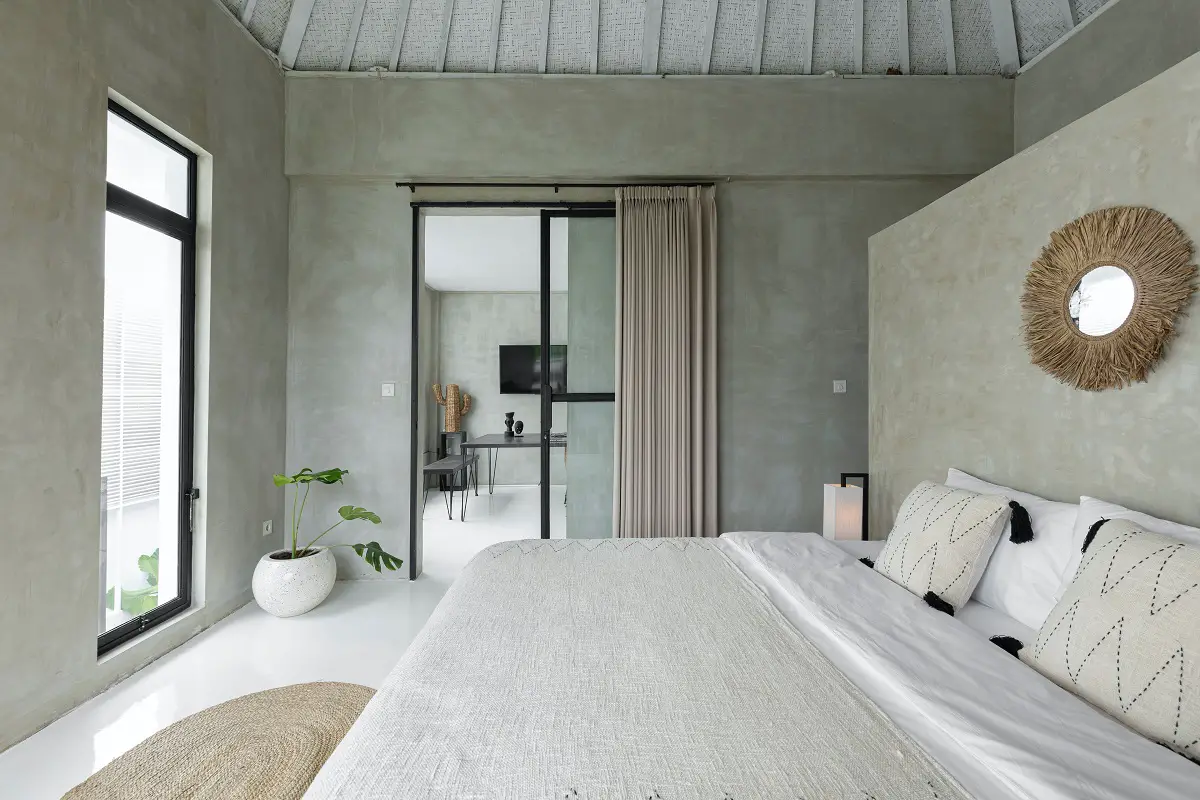
Buying a Villa in Bali: A Practical Guide
Many people have fallen in love with Bali – and if you have too, you’ve come to the right place! Bali is a beautiful place that attracts many who dream of owning their own piece of paradise.
This practical guide is designed to assist you on how to buy a villa in Bali, covering the basic information that you need — from understanding local regulations to setting a suitable budget and exploring the various types of villas available.
Contents
Why Bali?
Why should you consider buying a villa in Bali?
Well, apart from its stunning natural beauty, Bali offers a unique lifestyle that is hard to find anywhere else in the world. The island is famous for its laid-back vibe, warm and welcoming locals, and an endless array of activities to choose from.

Many expats and retirees choose to invest in Bali properties as a source of passive income or for retirement purposes.
Whether you are looking for a peaceful retirement spot, a vacation home, or an investment opportunity, Bali has something for everyone.
Last but not the last, the prices in Bali are way more affordable compared to US and European destinations, so your money will come a long way in making a beautiful home.
Can foreigners buy property in Bali?
First things first: can foreigners buy property in Bali?
The short answer is no. Indonesian law states that foreigners are not allowed to own freehold land (“Hak Milik” / Ownership Right). However, several options are still available if you want to have your own property in Bali:
- HGB (or “Hak Guna Bangunan” / Right to Build) is the right to build and own a building. The title is valid for 30 years and can be extended. Who is eligible: Foreign-own companies in Indonesia.
- Hak Pakai (Right to Use) is the right to use a property for residential/commercial properties. Who is eligible: Foreigners with a permanent residency and foreign-owned companies.
- Hak Sewa (Right to Lease) allows a foreigner to enter into a long-term lease agreement with the freeholder to use the property, for up to 25 years with an option to extend for another 25 years.
If you are an ordinary individual who wants to have their own property in Bali, the best option for you is to get a lease on the property of your choice. While you do not own the property, the certificate gives you the same rights as owning it.
On the other hand, if you do have a big capital, you can set up a foreign-owned company (or PT PMA), so you can begin commercial investments and activities in Bali, including villa rentals.
A large number of foreigners enter a “nominee ownership” in Bali, in which land is bought by a nominee (an Indonesian resident) on behalf of the foreigner. However, this involves a certain level of risk as this type of arrangement is not recognized by the local government and it requires absolute trust in the nominee.
Process of buying a villa in Bali
Buying a villa in Bali can be an overwhelming task, but with the right guidance, it can be a hassle-free process.
The best way to do this is to find a reputable real estate agent who specializes in Bali properties. They will help you navigate through the legalities, find suitable properties within your budget, and negotiate on your behalf.
Look for agents with a solid track record in the villa market and positive client feedback. A reputable agent can provide valuable insights into market trends, legalities, and local nuances, ensuring you find a villa that suits your preferences and requirements.
Moreover, local agents often have access to exclusive listings and can offer you unique insights into the local real estate market. They will guide you through the entire process, from selecting properties to closing the deal.
Once you have found your dream villa thru a real estate agent, the next step is to enter a lease agreement, as explained above.
Remember: thorough legal advice and due diligence is crucial before entering into any property agreement in Bali.
Setting your villa buying criteria
Now that you’ve gained a basic understanding of Bali’s property market, it’s time to dive deeper into the essential aspects of setting your villa-buying criteria.
Location

Selecting the right location is pivotal when it comes to buying a villa in Bali. Bali offers a variety of locales, each with its own unique charm and lifestyle.
If you prefer a vibrant atmosphere with lively beaches, Seminyak and Canggu may be your ideal choice. On the other hand, if you seek tranquility surrounded by lush rice paddies and rich cultural experiences, Ubud might be more appealing to you.
Villa types and features

Bali’s villas come in various architectural styles.
There are traditional Balinese villas, influenced by local architecture, featuring intricately carved wooden details, thatched roofs and open-air living areas. Modern villas, on the other hand, offer a sleek, contemporary feel with clean lines and minimalist design. Then, there are luxury villas, often located in prime locations such as Seminyak, Ubud, or along the coast in Uluwatu, boasting stunning ocean views, private pools, and lush tropical gardens.
As for amenities, most villas in Bali feature private pools, gardens, and outdoor areas for relaxation. Inside, you’ll typically find spacious open living areas, fully equipped kitchens, and en-suite bedrooms. Many luxury villas also offer additional amenities such as a gym, spa facilities, and home theatre.
It’s worth noting that the quality and range of amenities largely depend on the price bracket. Thus, while buying a villa in Bali can be a dream come true, it’s important to align your expectations with your budget.
Budget
How much do you need when buying a villa in Bali? Well, it depends on a lot of factors including the location, size, and amenities of the villa.
For a ballpark figure, you could expect to pay anywhere from $150,000 to $1 million USD for a villa. A modest two-bedroom villa in a less touristic area might start at around $150,000, while a luxurious villa in a prime location with amenities like a private pool, garden, and ocean views can easily exceed $1 million.
Beachfront villas in Seminyak or Canggu might come with a higher price tag compared to villas located in less touristy areas. On average, a beachfront villa can cost anywhere between $300,000 and $1 million.
Keep in mind that your budget should encompass various costs, including the purchase price of the villa, taxes, legal fees, and ongoing maintenance expenses.
Practical tips before buying a villa in Bali
If you plan on buying a villa in Bali for a vacation home, consider staying in the island for 1-2 years first to experience the everyday life first. Some find it easier to rent short-term for short vacation trips.
On the other hand, if you plan to buy a villa for rental purposes to generate passive income, you need to acquire knowledge of business registration, proper licensing, and other legalities. It is best to hire an expert legal consultant to inform you of these facts.
Additionally, take time to study the current property market, seasonal visitors in the island, and other developments in the area that may affect rental properties. Remember that people who sell investments often quote an ROI for maximum occupancy rates. 70% occupancy rate is realistically possible on high season, but during low season you may see lower numbers.
Purchasing a villa in Bali is an exciting journey that offers the opportunity to experience luxury living in a culturally rich and picturesque environment. Remember, thorough research and support are key to a successful purchase.
Your Bali villa won’t just be a home; it will be a sanctuary that embodies the essence of island living. Get ready to embark on this unforgettable adventure in Bali!
This article is contributed by an expert guest author.



